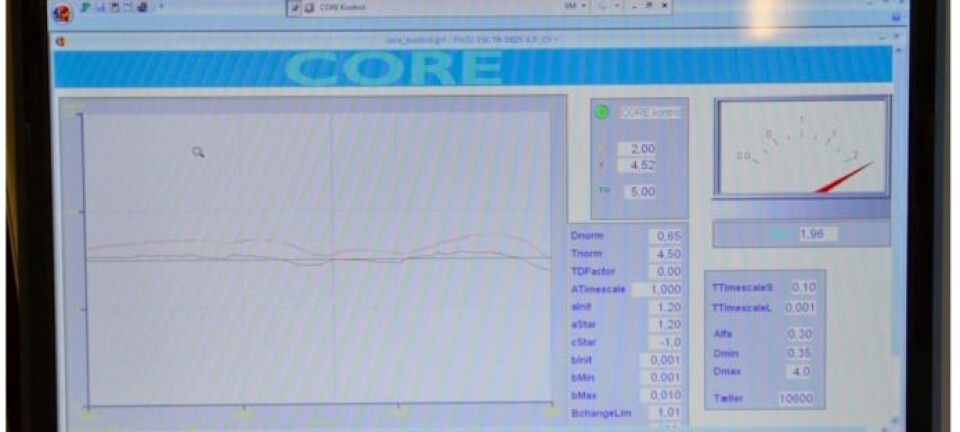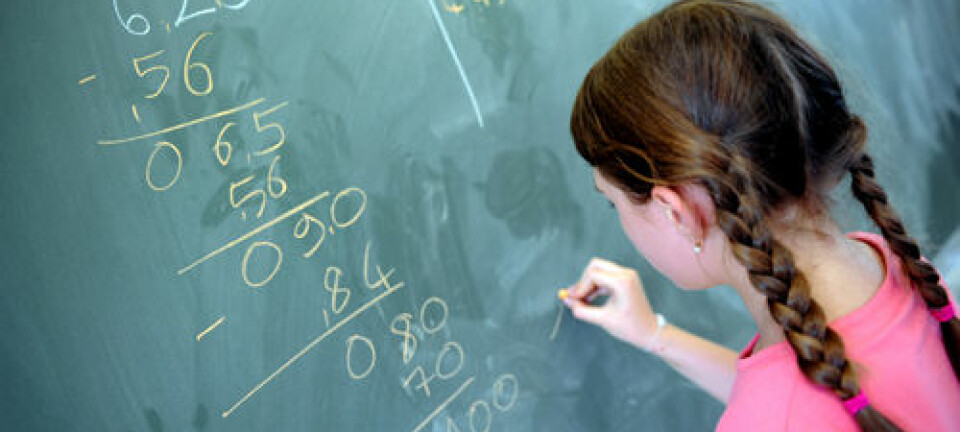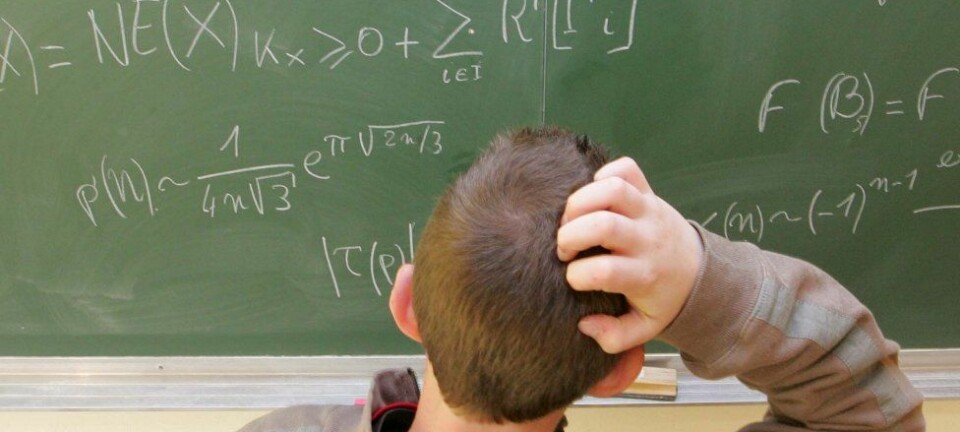An article from Norwegian SciTech News at NTNU

No math gene: learning mathematics takes practice
Practice, not innate skill, makes for good mathematicians
Denne artikkelen er over ti år gammel og kan inneholde utdatert informasjon.
What makes someone good at math? A love of numbers, perhaps, but a willingness to practice, too.
And even if you are good at one specific type of math, you can’t trust your innate abilities enough to skip practicing other types if you want to be good.
New research at the Norwegian University of Science and Technology (NTNU) in Trondheim could have an effect on how math is taught.
Not born with it
If you want to be really good at all types of math, you need to practice them all. You can’t trust your innate natural talent to do most of the job for you.

This might seem obvious to some, but it goes against the traditional view that if you are good at math, it is a skill that you are simply born with.
Professor Hermundur Sigmundsson at Department of Psychology is one of three researchers involved in the project. The results have been published in Psychological Reports.
The numbers
The researchers tested the math skills of 70 Norwegian fifth graders, aged 10.5 years on average.
Their results suggest that it is important to practice every single kind of math subject to be good at all of them, and that these skills aren’t something you are born with.
“We found support for a task specificity hypothesis. You become good at exactly what you practice,” Sigmundsson says.
Nine types of math tasks were tested, from normal addition and subtraction, both orally and in writing, to oral multiplication and understanding the clock and the calendar.
“Our study shows little correlation between (being good at) the nine different mathematical skills, says the researcher.
“For instance there is little correlation between being able to solve a normal addition in the form of ‘23 + 67’ and addition in the form of a word problem.”
This example might raise a few eyebrows. Perhaps basic math is not a problem for the student, but the reading itself is. Up to 20 percent of Norwegian boys in secondary school have problems with reading.
Struggles with algebra
Sigmundsson also finds support in everyday examples. “Some students will be good at geometry, but not so good at algebra,” he says.
If that is the case they have to practice more algebra, which is the area where most students in secondary school have problems.
“At the same time this means there is hope for some students. Some just can’t be good at all types of math, but at least they can be good at geometry, for example,” he says.
It is this finding that might in the end help change the way math is taught.
Support in neurology
The fact that you are good at precisely what you practice is probably due to the fact that different kinds of practice activate different neural connections.
The results can also be transferred to other areas. The football player who practices hitting the goal from 25 yards with a perfectly placed shot will become good at exactly this. But she is not necessarily good at tackling or reading the game.
“This is also supported by new insights in neurology. With practice you develop specific neural connections,” says Sigmundsson.
The research has been carried out in cooperation with Professor Remco C. J. Polmand at Victoria University, Melbourne, Australia and PhD candidate Håvard Lorås at the Faculty of Health Education and Social Work, Division of Physiotherapy, Sør-Trøndelag University College, Trondheim.
----------------------------
Read the Norwegian version of this article at forskning.no
Translated by: Nancy Bazilchuk




































